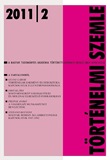„Baráti együttmûködés”: a magyar–román állambiztonsági kapcsolatok (1945–1982)
„Friendly Cooperation”: State Security Contacts between Hungary and Romania (1945–1982)
Author(s): Stefano BottoniSubject(s): History
Published by: Magyar Tudományos Akadémia Bölcsészettudományi Kutatóközpont Történettudományi Intézet
Summary/Abstract: This paper examines the failed attempt at creating an integrated intelligence community within the Soviet Bloc through the analysis of the Hungarian-Romanian case. In 1948, two long-standing enemies such as the Hungarian and the Romanian secret service, were forced to start a (mostly informal) mutual cooperation under Soviet guidance. Throughout the 1950s and the early 1960s, the two security forces carried out several joint operations targeting former war criminals, nationalist intellectuals, or ordinary people from Hungary visiting relatives and friends in Romania. Bilateral diplomatic relationships deteriorated after the so called „declaration of independence” issued in April 1964 by the Romanian Workers’Party, and so did the intelligence cooperation between the two ministries of Internal Affairs, which came to a complete stop after 15 years. After the 1968 Czechoslovak crisis, the Romanian authorities made further steps toward a new security doctrine focusing on national independence and territorial protection, setting up a special „anti-KGB” military unit which main targets came to be the USSR and the neighbouring Hungary, whose leadership was suspected to fuel popular nationalism over the sensible issue of Transylvania. During the 1970s, formally recorded (1972) but highly uneffective security cooperation hid the emerging conflicts. The Romanian security forces regarded Hungary as a potential threat, and ignoring the rules of engagement of the Warsaw Pact countries, which forbad hostile intellingence activity into another member state’s territory, started to infiltrate its political, cultural and economic structures. Hungary’s cautious reaction to the Romanian offensive posture aimed to reassure Moscow about the good will and the accountability of Kádár’s regime, but no gesture of appeasement could prevent the further worsening of the bilateral relations in the first half of the 1980s.
Journal: Történelmi Szemle
- Issue Year: 2011
- Issue No: 02
- Page Range: 235-258
- Page Count: 24
- Language: Hungarian

